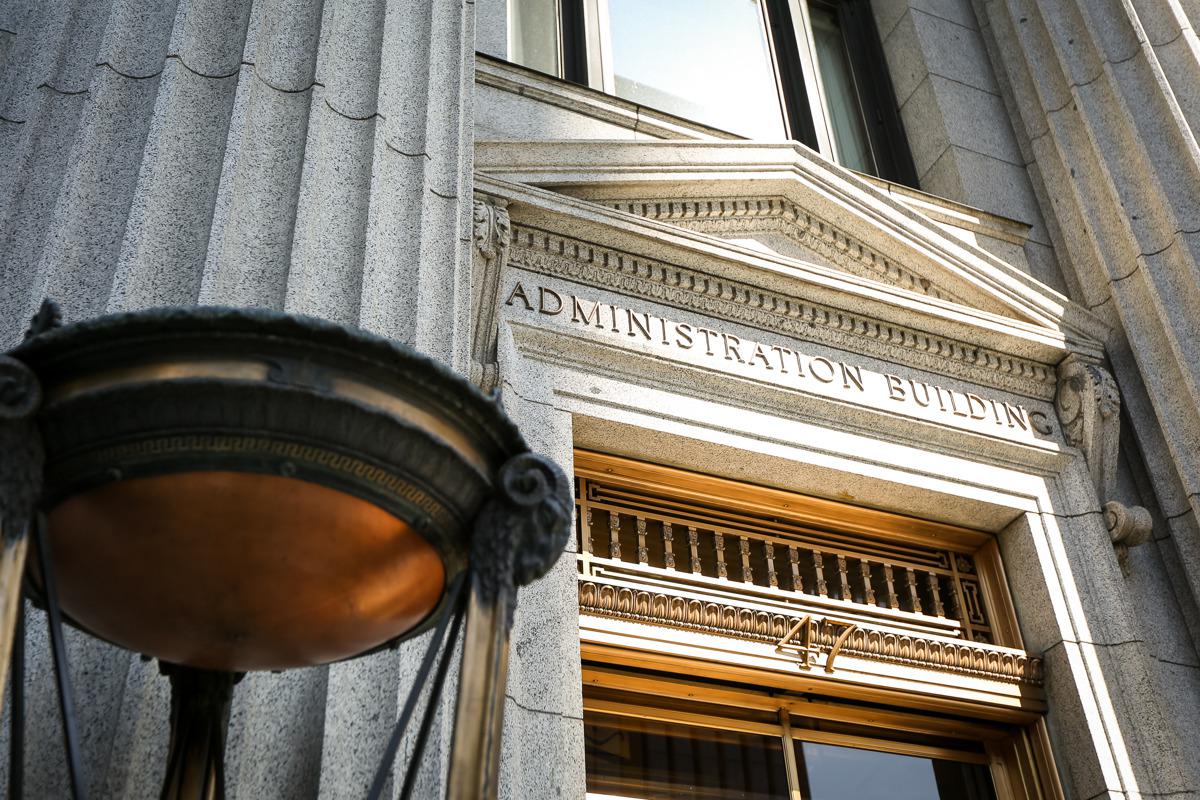|
Updated LDS policy allows another adult to sit in on leaders' interviews with children and women
By Tad Walch
[with pdf] The LDS Church's First Presidency announced significant policy changes Monday, providing direction on how bishops and stake presidencies may conduct interviews with women and children and how they counsel victims of abuse and sexual abuse. The changes specified that children, youth and women now may invite an adult to join them in what traditionally have been personal interviews. Some had said they were uncomfortable being interviewed one-on-one by a male priesthood leader. The First Presidency also clarified to members of bishoprics and stake presidencies how they should respond to reports of sexual abuse and how to minister in those situations. The changes explicitly state that local leaders of The Church of Jesus Christ of Latter-day Saints should never disregard a report of abuse and should never encourage members to remain in an abusive situation. "To ensure the safety and protection of children, youth and adults, we ask that all priesthood and auxiliary leaders become familiar with existing church policies and guidelines on preventing and responding to abuse," stated the letter, which was signed by church President Russell M. Nelson and his counselors, President Dallin H. Oaks and President Henry B. Eyring. The announcement arrived at a time of broad interest in the church's policies about the way bishoprics and stake presidencies interact with abusive situations as the #metoo moment draws attention to sexual assault and harassment. It also comes a week after a leaked recording made public a woman's accusation that a former president of the Missionary Training Center named Joseph Bishop raped her while she was a missionary at the Provo complex in 1984 and molested another missionary, a claim he denies. And this week — on Friday, the eve of the church's semiannual international general conference — leaders of a group called Protect LDS Children plan to demonstrate at church headquarters to protest one-on-one interviews with children. "These new policies are a great step," said Julie Valentine, a Brigham Young University nursing professor and expert on responding to sexual assault. "As members of the church, we want everyone to be healthy in every way, psychologically, physically and spiritually. These policies direct approaches that will help." The policy changes were outlined in the document, "Preventing and responding to abuse" sent with the letter. The new directives are now church policy and will be codified in Handbook 1, the general handbook of instructions for local leaders, a spokesman for the faith said. The letter and accompanying guidelines were sent to thousands of local LDS leaders in the United States and Canada. Valentine said all institutions need policies and procedures that encourage victims to come forward. "Those range from creating a safe environment where individuals feel they will be believed to, once a disclosure is made, believing the victim, following up on the disclosure and investigating," she said. The policy changes gave leaders direction to minister to abuse victims. "Church leaders should never disregard a report of abuse or counsel a member not to report criminal activity to law enforcement personnel," one alteration said. A second added, "Members should never be encouraged to remain in a home or situation that is abusive or unsafe." Marriage is a foundational doctrine in the church and, while divorce does occur and is allowed, general church leaders and the handbook have instructed bishops never to counsel couples to divorce because those decisions belong to the couple. "Prophets and apostles have always responded to the times in which they live," said Patrick Mason, the Howard W. Hunter Chair in Mormon Studies at Claremont Graduate University and the author of "Planted: Belief and Belonging in an Age of Doubt." "We see these cultural forces all converging at a point in time, and these changes make sense in the LDS Church," he said. "I think we'll look back on these measures and see them as common-sense decisions." The relevant part of the policy on bishop's interviews will now read, "When a member of a stake presidency or bishopric or another assigned leader meets with a child, youth, or woman, he or she should ask a parent or another adult to be in an adjoining room, foyer, or hall. If the person being interviewed desires, another adult may be invited to participate in the interview. Leaders should avoid all circumstances that could be misunderstood." A spokesman said the policy on interviews was designed to allow the person being interviewed to select the adult who would join the interview. That would allow a child who is being abused by an adult to pick a different one. "These are good clarifications," said Wendy Ulrich, a prominent LDS psychologist and author. "I'm glad they're able to officially say children can have someone come in with them for an interview." She said the trade-off is that a parent who is abusing a child may try to coerce that child into bringing the parent to the interview to prevent a disclosure. However, she said, "I think this is the right call." The founder of Protect the Children, which had called for an end to one-on-one interviews with kids, said the group's rally will move forward on Friday. The group has 1,200 people registered to march and received a permit for the event from Salt Lake City last week, Sam Young said. Monday's letter directed local church leaders to teach the policies and guidelines to stake and ward councils, which are comprised of men and women who lead various groups within congregations. The First Presidency also clarified on Monday that "at least two adults must be present on all church-sponsored activities attended by youth or children."
|
.
Any original material on these pages is copyright © BishopAccountability.org 2004. Reproduce freely with attribution.
